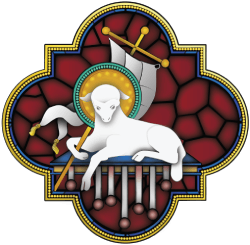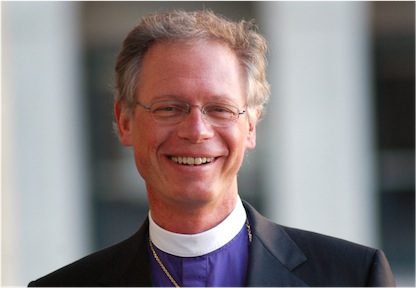The ministry of the former Bishop of California, the Rt. Rev. Marc Hadley Andrus, was suspended October 9 because of “a credible allegation of an inappropriate relationship with an adult” during his time leading the diocese. Andrus, 67, retired July 24 after 18 years as chief pastor of the San Francisco-based diocese.
“When I became your pastor, I wrote to you about the work we have to do, the trust we have to build, and the wounds we need to entrust to Christ’s healing power,” said his successor, the Rt. Rev. Austin Rios, in a pastoral letter to the diocese.
“I did not anticipate that this kind of painful situation would be among our first challenges together. But I believe that by loving God and one another and following the wisdom of Jesus, we will emerge from this difficulty more connected and more committed to the mission of God in our context.”
The restriction on ministry, Rios said, forbids Andrus from engaging in any ministerial activity while his Title IV case is pending. He is also forbidden from communication with anyone within the diocese.
Before becoming Bishop of California, Andrus served as a suffragan bishop in the Diocese of Alabama for four years. He had previously been a rector and school chaplain in the Diocese of Virginia. He has been married to his wife, Sheila, for 45 years, and they have two daughters.
A procedural timeline posted on the Church Center Office of Pastoral Development’s webpage for disciplinary cases involving bishops shows that his case has moved unusually quickly.
Information about the complaint was provided to the Rev. Barbara Kempf, intake officer for bishops, on October 2. One week later, Andrus’s ministry was restricted, and advisers were provided for him and the complainant. Advisers in Title IV cases “support, assist, consult with, advise” and in some circumstances speak on behalf of a complainant or respondent in formal proceedings.
The formal announcement of the restriction on Andrus’s ministry said that those responsible for the process “have been working to solidify a network of pastoral care and mental health support” for both parties involved in the complaint.
An intake report about the case was forwarded to a reference panel just two days later, on October 11. The panel will consist of Kempf, the presiding bishop or his designate, and the Rt. Rev. Nick Knisely, Bishop of Rhode of Island, the chair of the Disciplinary Board for Bishops. The disciplinary board, after canonical reforms passed at last summer’s General Convention, now includes lay and clergy members as well as bishops.
The reference panel will examine the complaint and decide either to dismiss the matter or to refer it for further action. Possible results could include a pastoral response or a formal investigation. The reference panel could also refer the case for conciliation, in which a third-party mediator would attempt to reach an agreement between the parties; or to a conference panel, an informal and confidential discussion of differences aimed at reaching an agreement or an accord.
The most serious and public result would be a referral to a hearing panel, an event akin to a trial. The full details of the complaint would only be made public if a hearing panel is convened.
There are nine Title IV cases involving seven bishops listed on the Office of Pastoral Development’s webpage. Four of the nine cases were referred to a hearing panel last June— two involving allegations of discrimination and financial mishandling by former Florida Bishop John Howard and two of allegations of abusive and improper behavior against former Rochester bishop Prince Singh.
The hearing panels for these three cases have not yet been convened and no documentation about the complaints has been released to the public.
The last hearing panel to try a bishop was convened in October 2020, and ruled that the Rt. Rev. William Love of Albany was guilty of failing to conform to “the doctrine, discipline, and worship of the Episcopal Church” because he would not allow same-sex marriages in his diocese. Love subsequently resigned and was released from ministry in the Episcopal Church. He now serves as a bishop in the Anglican Church in North America.




